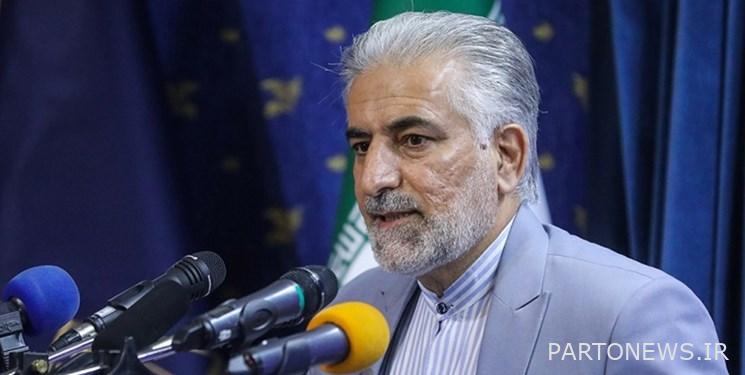
According to Fars News Agency, quoting the information base of the Prisons Organization and the country’s security and training measures, Gholam Ali Mohammadi, head of the Prisons Organization, and Sardar Ashtari, commander of the NAJA, stressed the need for more cooperation between the two agencies.
In this meeting, the head of the Prisons Organization reminded that prison is one of the security circles in the country, and said: “Although our main mission in the Prisons Organization is to reform and train prisoners, but this issue should not overshadow security issues.”
He stated that in order to have a security view of the prisons and to implement correctional and educational programs, we need to interact with the NAJA.
Gholam-Ali Mohammadi continued: “Fortunately, whenever the organization needed NAJA colleagues, they came to the aid of the prisoners in the shortest possible time with the appropriate deterrent power and did not allow any problems to arise.”
Referring to the sufferings of the Corona period, he also mentioned some points in order to interact as much as possible. And this solved the problems of deportation and deportation.
Mohammadi called e-litigation significant in some provinces and explained, referring to some provinces: “We even see in some provinces, such as Mazandaran, that 80% of the judicial process is done electronically and this action will be extended to other provinces.”
Mohammadi announced: so far, 192 prisons have been equipped with electronic systems, and even in 16 prisons, we are witnessing electronic meetings, and we are trying to increase this number to 30 prisons soon. Also, our three large prisons are now equipped with micro-bird control systems.
The head of the Prisons Organization also referred to the security situation in the prisons and noted: “Considering the security view of the prisons and the staff of the Prison Protection Unit, our first request is that, according to recent approvals, 500 NAJA personnel be detained for two years.” Be assigned to the prisoner organization.
He said: “I hope that due to the completion of the training staff of Martyr Kachuei, a number of NAJA forces will be assigned to the prisons organization.”
Mohammadi further said about the prisoners in the prisons: “Some of our prisoners are thieves or dangerous prisoners who have endangered the security of the country and in proportion to their crime, the privileges granted to them will be limited.” We must be strict with these people. At the same time, the prison must show its human and Islamic function in practice.
“We have paid attention to the records of individuals in granting amnesty, and such a privilege certainly does not include dangerous thieves,” he said. Violent circulars for prisoners of conscience and armed robbery are exempt.
Emphasizing that the transfer of prisoners from outside the cities is on the agenda, Mohammadi clarified regarding the interactions of the Prisons Organization with the NAJA: “We need to form a joint working group with the NAJA.” New measures are being implemented in prisons, including the fact that by the end of the year, nearly 11,000 electronic bonds will be used, and we hope to increase this number to 30,000 in the first half of next year.
Along with the prisoners, the NAJA is in charge of ensuring the security of the community
In the continuation of this meeting, Sardar Ashtari, the commander of NAJA, welcomed such a meeting and said: “Our building is a close relationship with the judiciary in various fields.” In relation to the prisons organization, this cooperation can also be developed at two levels of the organization’s needs for the protection unit, as well as measures related to the field of crime prevention.
He added: “We need to access the information of criminals and at the same time, by amending the regulations, make the prisoners more intelligent.” In the case of the police, we have implemented such a procedure, which has also been achieved for the prisoners, and we also welcome the formation of a working group between the NAJA and the prison organization, and introduce the relevant authorities to establish it.
Emphasizing that the NAJA supports the actions of the prisons organization, the NAJA commander said: “We will help any need that the prison has, because this assistance will help our mission, which is to ensure the security of the community.” We will not allow criminals to be comfortable and the necessary controls will be carried out. Therefore, it is necessary to identify gaps, form working groups and cooperate with the prison in various fields.
Sardar Ashtari also said in this meeting: the duties of prisoners who are absent from leave should be determined. In addition, we will re-establish the coordination offices between the NAJA and the Prisoners’ Organization, which already existed. I hope that the important issue of transferring prisoners, including clients based in the Alborz prison area, out of the cities will be operationalized.
End of message /
You can edit this post
Suggest this for the front page

